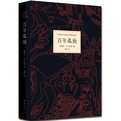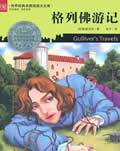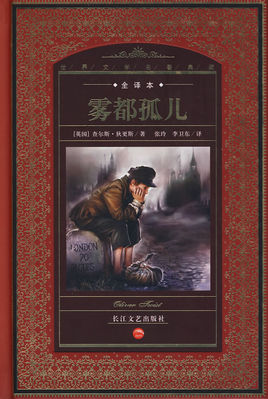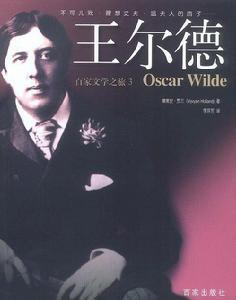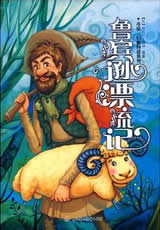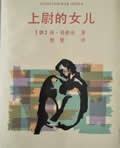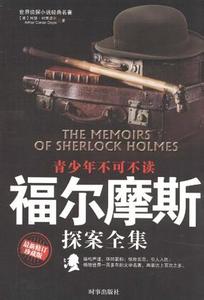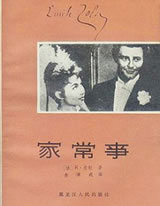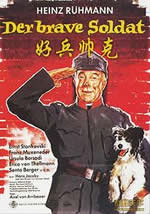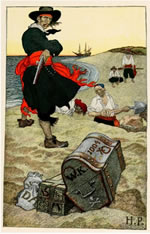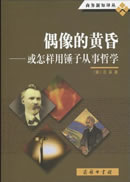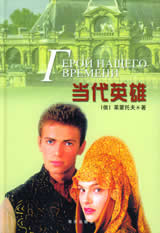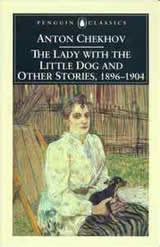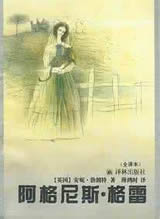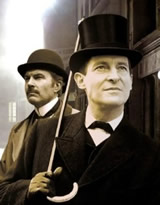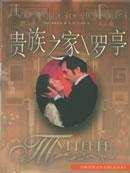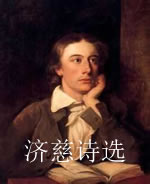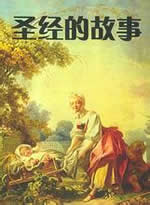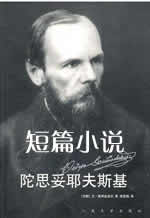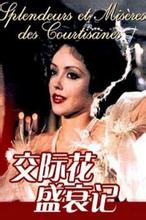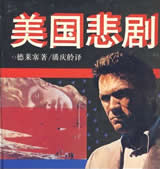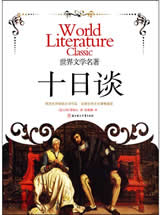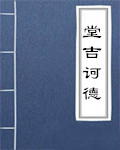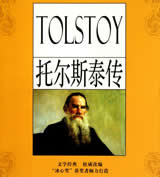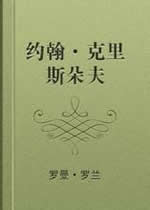回忆录系列《Thenavaltreaty――海军协定(英文版)》
Conan Doyle
The July which immediately succeeded my marriage was made memorable by threecases of interest in which I had the privilege of being associated with SherlockHolmes, and of studying his methods. I find them recorded in my notes under theheadings of the adventure of the Second stain, the adventure of the naval treaty,and the adventure of the tired captain. The first of these, however, deals withinterests of such importance, and implicates so many of the first families in thekingdom, that for many years it will be impossible to make it public. No case,however, in which Holmes was ever engaged has illustrated the value of his analyticalmethods so clearly or has impressed those who were associated with him so deeply. Istill retain an almost verbatim report of the interview in which he demonstrated thetrue facts of the case to Monsieur Dubuque, of the Paris police, and fritz vonWaldbaum, the well-known specialist of Dantzig, both of whom had wasted theirenergies upon what proved to be side-issues. The new century will have come,however, before the story can be safely told. Meanwhile, I pass on to the second uponmy list, which promised also, at one time, to be of national importance, and wasmarked by several incidents which give it a quite unique character.During my school-days I had been intimately associated with a lad named PercyPhelps, who was of much the same age as myself, though he was two classes ahead ofme. He was a very brilliant boy, and carried away every prize which the school had tooffer, finishing his exploits by winning a scholarship, which sent him on to continuehis triumphant career at Cambridge. He was, I remember, extremely well connectedand ever when we were all little boys together, we knew that his mothers brother wasLord Holdhurst, the great Conservative politician. This gaudy relationship did himlittle good at school; on the contrary, it seemed rather a piquant thing to us to chevyhim about the playground and hit him over the shins with a wicket. But it was anotherthing when he came out into the world. I heard vaguely that his abilities and theinfluence which he commanded had won him a good position at the Foreign Office,and then he passed completely out of my mind until the following letter recalled hisexistence:
BRIARBRAE, WOKING
MY DEAR WATSON, ----- I have no doubt that you can remember tadpole Phelps,who was in the fifth form when you were in the third. It is possible even that you mayhave heard that, through my uncles influence, I obtained a good appointment at theForeign Office, and that I was in situation of trust and honour until a horriblemisfortune came suddenly to blast my career.
There is no use writing the details of that dreadful event. In the event of youracceding to my request, it is probable that I shall have narrated them to you. I haveonly just recovered from nine weeks of brain fever, and am still exceedingly weak. Doyou think that you could bring your friend, Mr. Holmes, down to see me? I should liketo have his opinion of the case, though the authorities assure me that nothing more canbe dong. Do try to bring him down, and as soon as possible. Every minute seems anhour while I live in this horrible suspense. Assure him that, if I have not asked hisadvice sooner, it was not because I did not appreciate his talents, but because I havebeen off my head ver since the blow fell. Now I am clear again, though I dare notthink of it too much for fear of a relapse. I am still so weak that I have to write, as yousee, by dictating. Do try and bring him.Your old schoolfellow,PERCY PHELPS
There was something that touched me as I read this letter, something pitiable in thereiterated appeals to bring Holmes. So moved was I that, even if it had been a difficultmatter, I should have tried it; but, of course, I knew well that Holmes loved his art so,that he was ever as ready to bring his aid as his client could be to receive it. My wifeagreed with me that not a moment should be lost in laying the matter before him, andso, within an hour of breakfast-time, I found myself back once more in the old roomsin Baker Street.
Holmes was seated at his side-table clad in his dressing-gown and working hardover a chemical investigation. A large curved retort was boiling furiously in the bluishflame of a Bunsen burner, and the distilled drops were condensing into a two-litremeasure. My friend hardly glanced up as I entered, and I, seeing that his investigationmust be of importance, seated myself in an arm-chair and waited. He dipped into thisbottle or that, drawing out a few drops of each with his glass pipette, and finallybrought a test-tube containing a solution over to the table. In his right hand he had aslip of litmus-paper.
You come at a crisis, Watson, said he. If this paper remains blue, all is well. If itturns red, it means a mans life. He dipped it into the test-tube, and it flushed at onceinto a dull, dirty crimson. Hum! I thought as much! he cried. I shall be at yourservice in one instant, Watson. You will find tobacco in the Persian slipper. He turnedto his desk and scribbled off several telegrams, which were handed over to thepage-boy. Then he threw himself down in the chair opposite, and drew up his kneesuntil his fingers clasped round his long, thin shins.
A very commonplace little murder, said he. Youve got something better, I fancy.You are the stormy petrel of crime, Watson. What is it?
I handed him the letter, which he read with the most concentrated attention.
It does not tell us very much, does it? he remarked, as he handed it back to me.
Hardly anything.
And yet the writing is not his own.
Precisely. It is a womans.
A mans surely! I cried.
No, a womans; and a woman of rare character. You see, at the commencement ofan investigation, it is something to know that your client is in close contact withsomeone who for good or evil has an exceptional nature. My interest is alreadyawakened in the case. If you are ready, we will start at once for Woking and see thisdiplomatist who is in such evil case, and the lady to whom he dictates his letters.
We were fortunate enough to catch an early train at Waterloo, and in a little underan hour we found ourselves among the fir-woods and the heather of Woking.Briarbrae proved to be a large detached house standing in extensive grounds, within afew minutes walk of the station. On sending in our cards we were shown into anelegantly appointed drawing-room, where we were joined in a few minutes by a ratherstout man, who received us with much hospitality. His age may have been nearer fortythan thirty, but his cheeks were so ruddy and his eyes so merry, that he still conveyedthe impression of a plump and mischievous boy.
I am so glad that you have come said he, shaking our hands with effusion. Percyhas been inquiring for you all the morning. Ah, poor old chap, he clings to any straw.His father and mother asked me to see you, for the mere mention of the subject is verypainful to them.
We have had no details yet, observed Holmes. I perceive that you are notyourself a member of the family.
Our acquaintance looked surprised, and then glancing down he began to laugh.
Of course you saw the J. H. Monogram on my locket, said he. For a moment Ithought you had done something clever. Joseph Harrison is my name, and as Percy isto marry my sister Annie, I shall at least be a relation by marriage. You will find mysister in his room, for she has nursed him hand-and-foot these two months back.Perhaps we had better go in at once, for I know how impatient he is.
The chamber into which we were shown was on the same floor as thedrawing-room. It was furnished partly as a sitting- and partly as a bedroom, withflowers arranged daintily in every nook and corner. A young man, very pale and worn,was lying upon a sofa near the open window, through which came the rich scent of thegarden and the balmy summer air. A woman was sitting beside him, and rose as weentered.
Shall I leave, Percy? she asked.
He clutched her hand to detain her. How are you, Watson? said he, cordially. Ishould never have known you under that moustache, and I dare say you would not beprepared to swear to me. This, I presume, is your celebrated friend, Mr. SherlockHolmes?
I introduced him in a few words, and we both sat down. The stout young man hadleft us, but his sister still remained, with her hand in that of the invalid. She was astriking-looking woman, a little short and thick for symmetry, but with a beautifulolive complexion, large, dark Italian eyes, and a wealth of deep black hair. Her richtints made the white face of her companion the more worn and haggard by thecontrast.
I wont waste your time, said he, raising himself upon the sofa. Ill plunge intothe matter without further preamble. I was a happy and successful man, Mr. Holmes,and on the eve of being married, when a sudden and dreadful misfortune wrecked allmy prospects in life.
I was, as Watson may have told you, in the Foreign Office, and through theinfluence of my uncle, Lord Holdhurst, I rose rapidly to a responsible position. Whenmy uncle became Foreign Minister in this Administration he gave me severalmissions of trust, and as I always brought them to a successful conclusion, he came atlast to have the utmost confidence in my ability and tact.
Nearly ten weeks ago- to be more accurate, on the 23rd of May he called me intohis private room and, after complimenting me upon the good work which I had done,informed me that he had a new commission of trust for me to execute.
This, said he, taking a grey roll of paper from his bureau, is the original of thatsecret treaty between England and Italy, of which, I regret to say, some rumours havealready got into the public Press. It is of enormous importance that nothing furthershould leak out. The French or Russian Embassies would pay an immense sum learnthe contents of these papers. They should not leave my bureau were it not that it isabsolutely necessary to have them copied. You have a desk in your office?
Yes, sir.
Then take the treaty and lock it up there. I shall give directions that you mayremain behind when the others go, so that you may copy it at your leisure, withoutfear of being overlooked. When you have finished, re-lock both the original and thedraft in the desk, and hand them over to personally to-morrow morning.
I took the papers and--
Excuse me an instant, said Holmes; were you alone during this conversation?
Absolutely.
In a large room?
Thirty feet each way.
In the centre?
Yes, about it.
And speaking low?
My uncles voice is always remarkably low. I hardly spoke at all.
Thank you, said Holmes, shutting his eyes; pray go on.
I did exactly what he had indicated, and waited until the other clerks had departed.One of them in my room, Charles Gorot, had some arrears of work to make up, so Ileft him there and went out to dine. When I returned he was gone. I was anxious tohurry my work, for I knew that Joseph, the Mr. Harrison whom you saw just now, wasin town, and that he would travel down to Woking by the eleven oclock train, and Iwanted if possible to catch it.
When I came to examine the treaty I saw at once that it was of such importancethat my uncle had been guilty of no exaggeration in what he had said. Without goinginto details, I may say that it defined the position of Great Britain towards the TripleAlliance, and foreshadowed the policy which this country would pursue in the eventof the French fleet gaining a complete ascendency over that of Italy in theMediterranean. The questions treated in it were purely naval. At the end were thesignatures of the high dignitaries who had signed it. I glanced my eyes over it, andthen settled down to my task of copying.
It was a long document, written in the French language, and containing twenty-sixseparate articles. I copied as quickly as I could, but at nine oclock I had only donenine articles, and it seemed hopeless for me to attempt to catch my train. I was fellingdrowsy and stupid, partly from my dinner and also from the effects of along dayswork. A cup of coffee would clear my brain. A commissionaire remains all night in alittle lodge at the foot of the stairs, and is in the habit of making coffee at hisspirit-lamp for any of the officials who may be working overtime. I rang the bell,therefore, to summon him.
To my surprise, it was a woman who answered the summons, a large, coarse-faced,elderly woman, in an apron. She explained that she was the commissionaires wife,who did the charing, and I gave her the order for the coffee.
I wrote two more articles, and then, feeling more drowsy than ever, I rose andwalked up and down the room to stretch my legs. My coffee had not yet come, and Iwondered what the cause of the delay could be. Opening the door, I started down thecorridor to find out. There was a straight passage dimly lit which led from the room inwhich I had been working, and was the only exit from it. It ended in curving staircase,with the commissionaires lodge in the passage at the bottom. Half-way down thisstaircase is a small landing, with another passage running into it at right angles. Thesecond one leads, by means of a second small stair, to a side-door used by servants,and also as a short cut by clerks when coming from Charles Street.
Here is a rough chart of the place.
Thank you. I think that I quite follow you, said Sherlock Holmes.
It is of the utmost importance that you should notice this point. I went down thestairs and into the hall, where I found the commissionaire fast asleep in his box, withthe kettle boiling furiously upon the spirit-lamp, for the water was spurting over thefloor. I had put out my hand and was about to shake the man, who was still sleepingsoundly, when a bell over his head rang loudly, and he woke with a start.
Mr. Phelps, sir! said he, looking at me in bewilderment.
I came down to see if my coffee was ready.
I was boiling the kettle when I fell asleep, sir. He looked at me and then up atthe still quivering bell, with an ever-growing astonishment upon his face.
If you was here, sir, then who rang the bell? he asked.
The bell! I said. What bell is it?
Its the bell of the room you were working in.
A cold hand seemed to close round my heart. Someone, then, was in that roomwhere my precious treaty lay upon the table. I ran frantically up the stairs and alongthe passage. There was no one in the corridor, Mr. Holmes. There was no one in theroom. All was exactly as I left it, save only that the papers committed to my care hadbeen taken from the desk on which they lay. The copy was there and the original wasgone.
Holmes sat up in his chair and rubbed his hands. I could see that the problem wasentirely to his heart. Pray, what did you do then? he murmured.
I recognized in an instant that the thief must have come up the stairs from theside-door. Of course I must have met him if he had come the other way.
You were satisfied that he could not have been concealed in the room all the time,or in the corridor which you have just described as dimly lighted?
It is absolutely impossible. A rat could not conceal himself either in the room orthe corridor. There is no cover at all.
Thank you. Pray proceed.
The commissionaire, seeing by may pale face that something was to be feared, hadfollowed me upstairs. Now we both rushed along the corridor and down the steepsteps which led to Charles Street. The door at bottom was closed but unlocked. Weflung it open and rushed out. I can distinctly remember that as we did so there camethree chimes from a neighbouring church. It was a quarter to ten.
That is of enormous importance, said Holmes, making a note upon his shirt cuff.
The night was very dark, and a thin, warm rain was falling. There was no one inCharles Street, but a great traffic was going on, as usual, in Whitehall, at the extremity.We rushed along the pavement, bareheaded as we were, and at the far corner we founda policeman standing.
A robbery has been committed, I gasped. A document of immense value hasbeen stolen from the Foreign Office. Has anyone passed this way?
I have been standing here for a quarter of an hour, sir, said he; only one personhas passed during that time--a woman, tall and elderly, with a Paisley Shawl.
Ah, that is only my wife, cried the commissionaire. Has no one else passed?
No one.
Then it must be the other way that the thief took, cried the fellow, tugging at mysleeve.
But I was not satisfied, and the attempts which he made to draw me awayincreased my suspicions.
Which way did the woman go? I cried.
I dont know, sir. I noticed her pass, but I had no special reason for watching her.She seemed to be in a hurry.
How long ago was it?
Oh, not very many minutes.
Within the last five?
Well, it could not be more than five.
Youre only wasting your time, sir, and every minute now is of importance,cried the commissionaire. Take my word for it that my old woman has nothing to dowith it, and come down to the other end of the street. Well, if you wont, I will, andwith that he rushed off in the other direction.
But I was after him in an instant and caught him by the sleeve.
Where do you live? said I.
No. 16 Ivy Lane, Brixton, he answered; but dont let yourself be drawn awayupon a false scent, Mr. Phelps. Come to the other end of the street, and let us see if wecan hear of anything.
Nothing was to be lost by following his advice. With the policeman we bothhurried down, but only to find the street full of traffic, many people coming and going,but all only too eager to get to a place of safety upon so wet a night. There was nolounger who could tell us who had passed.
Then we returned to the office, and searched the stairs and the passage withoutresult. The corridor which led to the room was laid down with a kind of creamylinoleum, which shows an impression very easily. We examined it very carefully, butfound no outline of any footmark.
Had it been raining all the evening?
Since about seven.
How is it, then, that the woman who came into the room about nine left no traceswith her muddy boots?
I am glad you raise the point. It occurred to me at the time. The charwomen are inthe habit of taking off their boots at the commissionaires office, and putting on listslippers.
That is very clear. There were no marks, then, though the night was a wet one?The chain of events is certainly one of extraordinary interest. What did you do next?
We examined the room also. There was no possibility of a secret door, and thewindows are quite thirty feet from the ground. Both of them were fastened on theinside. The carpet prevents any possibility of a trap-door, and the ceiling is of theordinary white-washed kind. I will pledge my life that whoever stole my papers couldonly have come through the door.
How about the fireplace?
They use none. There is a stove. The bell-rope hangs from the wire just to the rightof my desk. Whoever rang it must have come right up to the desk to do it. But whyshould any criminal wish to ring the bell? It is a most insoluble mystery.
Certainly the incident was unusual. What were your next steps? You examined theroom, I presume, to see if the intruder had left any traces--any cigar-end, or droppedglove, or hairpin, or other trifle?
There was of nothing of the sort.
No smell?
Well, we never thought of that.
Ah, a scent of tobacco would have been worth a great deal to us in such aninvestigation.
I never smoke myself, so I think I should have observed it if there had been anysmell of tobacco. There was absolutely no clue of any kind. The only tangible factwas that the commissionaires wife--Mrs. Tangey was the name--had hurried out ofthe place. He could give no explanation save that it was about the time when thewoman always went home. The policeman and I agreed that our best plan would be toseize the woman before she could get rid of the papers, presuming that she had them.
The alarm had reached Scotland Yard by this time, and Mr. Forbes, the detective,came round at once and took up the case with a great deal of energy. We hired ahansom, and in half an hour we were at the address which had been given to us. Ayoung woman opened the door, who proved to be Mrs. Tangeys eldest daughter. Hermother had to come back yet, and we were shown into the front room to wait.
About ten minutes later a knock came at the door, and here we made the oneserious mistake for which we allowed the girl to do so. We heard her say, Mother,there are two men in the house waiting to see you, and an instant afterwards weheard the patter of feet rushing down the passage. Forbes flung open the door, and weboth ran into the back room or kitchen, but the woman had got there before us. Shestared at us with defiant eyes, and then suddenly recognizing me, an expression ofabsolute astonishment came over her face.
Why, if it isnt Mr. Phelps, of the office! she cried.
Come, come, who did you think we were when you ran away from us? asked mycompanion.
I thought you were the brokers, said she. Weve had some trouble with atradesman.
Thats not quite good enough, answered Forbes. We have reason to believe thatyou have taken a paper of importance from the Foreign Office, and that you ran in herto dispose of it. You must come back with us to Scotland Yard to be searched.
It was in vain that she protested and resisted. A four-wheeler was brought, and weall three drove back in it. We had first made an examination of the kitchen, andespecially of the kitchen fire, to see whether she might have made away with thepapers during the instant that she was alone. There were no signs. However, of anyashes or scraps. When we reached Scotland Yard she was handed over at once to thefemale searcher. I waited in an agony of suspense until she came back with her report.There were no signs of the papers.
Then, for the first time, the horror of my situation came in its full force upon me.Hitherto I had been so confident of regaining the treaty at once that I had not dared tothink of what would be the consequence if I failed to do so. But now there wasnothing more to be done, and I had leisure to realize my position. It was horrible!Watson there would tell you that I was a nervous, sensitive boy at school. It is mynature. I thought of my uncle and of his colleagues in the Cabinet, of the shame whichI had brought upon him, upon myself, upon everyone connected with me. Whatthought I was the victim of an extraordinary accident? No allowance is made foraccidents where diplomatic interests are at stake. I was ruined; shamefully, hopelesslyruined. I dont know what I did. I fancy I must have made a scene. I have a dimrecollection of a group of officials who crowded round me endeavouring to soothe me.One of them drove down with me to Waterloo and saw me into the Woking train. Ibelieve that he would have come all the way had it not been that Dr. Ferrier, who livesnear me, was going down by that very train. The doctor most kindly took charge ofme, and it was well he did so, for I had a fit in the station, and before we reachedhome I was practically a raving maniac.
更新至 · 冒险史系列《铜山毛榉案》
2024-08-09- 回忆录系列《银色马》
- 回忆录系列《黄面人》
- 回忆录系列《“格洛里亚斯科特”号三桅帆船》
- 回忆录系列《赖盖特之谜》
- 回忆录系列《马斯格雷夫礼典》
- 回忆录系列《驼背人》
- 回忆录系列《证券经纪人的书记员》
- 回忆录系列《住院的病人》
- 回忆录系列《海军协定》
- 回忆录系列《Thenavaltreaty――海军协定(英文版)》
- 回忆录系列《最后一案》
- 回忆录系列《希腊译员》
- 冒险史系列《波西米亚丑闻①第一章 》
- 冒险史系列《身分案》
- 冒险史系列《红发会》
- 冒险史系列《斑点带子案》
- 冒险史系列《工程师大拇指案》
- 冒险史系列《贵族单身汉案》
- 冒险史系列《绿玉皇冠案》
- 冒险史系列《博斯科姆比溪谷秘案》
- 冒险史系列《五个桔核》
- 冒险史系列《歪唇男人》
- 冒险史系列《蓝宝石案》
- 冒险史系列《铜山毛榉案》
网友评论
“阿・柯南道尔”相关作品
-
百年孤独
《百年孤独》百年孤独-加夫列尔·加西亚·马尔克斯《百年孤独》写的是布恩地亚一家七代人充满神奇色彩的坎坷经历和马贡多这个小镇一百多年来从兴建、发展、鼎盛及至消亡的历史。作品内容复杂,人物众多,情节离奇,手法新颖,它汇集了不可思议的奇迹和最纯粹的现实生活,深刻反映了歌伦比亚乃至整个拉美大陆的历史演变和社会现实。
加夫列尔·加西亚·马尔克斯 · 著 -
古兰经
《古兰经》古兰经每一章以一个阿拉伯语词作为名称。《古兰经》不仅是一部宗教经典,更是关于人类社会的最高法则。伊斯兰教徒认为它是真主对先知穆罕默德在二 十三年陆续启示的真实语言。
伊斯兰教的经典 · 著 -
24个比利
《24个比利》《24个比利》小说在线阅读-丹尼尔・凯斯
丹尼尔・凯斯 · 著 -
激发无限潜能
《激发无限潜能》激励大师罗宾斯巨人系列。 安东尼・罗宾斯最具影响力的经典之作,《纽约时报》畅销书排行榜第一名。 安东尼・罗宾斯(Anthony Robbins)首次与大陆读者见面。世界顶尖的激励大师,全球著名的畅销书作家。 安东尼・罗宾斯把这本书称为个人成就的新科学,如果你愿意,读这本书将成为对你影响最大的事。如果你曾梦想过上美好生活,这本书将教会你如何达到你想要的生活和你应得的生活……
-
纯真博物馆
《纯真博物馆》纯真博物馆-奥尔罕·帕慕克《纯真博物馆》(土耳其语:Masumiyet Müzesi),是由2006年诺贝尔文学奖得主、土耳其作家奥尔罕·帕穆克撰写的一部小说。这部小说于2008年8月在伊斯坦布尔出版。2010年1月,上海人民出版社引进并出版了该书的简体中文版。作者帕穆克说“这是我最柔情的小说,是对众生显示出最大耐心与敬意的
奥尔罕·帕慕克 · 著 -
格列佛游记
《格列佛游记》作品以里梅尔·格列佛(又译为莱缪尔·格列佛)船长的口气叙述周游四国的经历。通过格列佛在利立浦特、布罗卜丁奈格、飞岛国、慧骃国的奇遇,反映了18世纪前半期英国统治阶级的腐败和罪恶。还以较为完美的艺术形式表达了作者的思想观念,作者用了丰富的讽刺手法和虚构的幻想写出了荒诞而离奇的情节,深刻地反映了当时的英国议会中毫无意义的党派斗争,统治集团的昏庸腐朽和唯利是图,对殖民战争的残酷暴戾进行了揭露和批判;同时它在一定程度上歌颂了殖民地人民反抗统治者的英勇斗争。
-
雾都孤儿
《雾都孤儿》雾都孤儿-狄更斯《雾都孤儿》是英国作家狄更斯于1838年出版的长篇写实小说。该作以雾都伦敦为背景,讲述了一个孤儿悲惨的身世及遭遇。主人公奥利弗在孤儿院长大,经历学徒生涯,艰苦逃难,误入贼窝,又被迫与狠毒的凶徒为伍,历尽无数辛酸,最后在善良人的帮助下,查明身世并获得了幸福。
狄更斯 · 著 -
石榴之屋
《石榴之屋》石榴之屋-奥斯卡·王尔德在加冕典礼的前一天晚上,少年国王独自一人坐在他那间漂亮的房子里。他的大臣们按照当时的礼节,头朝地向他鞠了躬,便告辞而去。他们来到皇宫的大厅中,向礼节教授学习最后的几堂课,因为他们当中有几个人的举止还没有经过教化,不用说,这是很不礼貌的事情。这位少年——他仅仅是个少年,不过才十六岁——对他们的离去一点
奥斯卡·王尔德 · 著 -
杜拉斯《情人》
《杜拉斯《情人》》《情人》杜拉斯代表作之一,自传性质的小说,获一九八四年法国龚古尔文学奖。全书以法国殖民者在越南的生活为背景,描写贫穷的法国女孩与富有的中国少爷之间深沉而无望的爱情。
-
鲁滨逊漂流记
《鲁滨逊漂流记》小说以1704年一名苏格兰水手亚历山大・薛里基洛克航海遇险,飘流在一个荒岛上,并且单独留居了四年才被救回了故事作为素材,加工而成的。小说的主人公鲁滨逊是一青年,性喜冒险。他不顾父亲的劝阻,决心要过海上生活。开头号几次航海以商颇为顺利,但有一次为土耳其海盗所俘,幸而不久脱脱逃,至巴西经营蔗田和糖厂。四年后,因获暴利又往非洲反卖黑 八股中于大海中遇险,船上全部船员葬身鱼腹,仅鲁滨逊一个脱难,飘流至一荒岛之上。从此,他孤独一个在岛羊、造船等。后来。他救了一个野人俘虏,取名礼拜五。鲁滨逊在岛上生活了二十八年,最后一艘英国船航经荒岛,他才有机会搭船回国。
-
小木屋系列7
《小木屋系列7》在《草原小镇》一书中,罗兰十五岁了,她在学校结交同龄的女孩与男孩,也开始注意打扮,青春期的敏感与反抗情绪使她认识到自制力的重要。同时,爸妈也存够钱送玛莉去读盲人学校。玛莉的离家更加深了姐妹亲情,罗兰为了赚钱帮助玛莉继续留在学校,努力读书,终于取得教师资格。在故事末尾,罗兰意外获得一份教师工作,准备离家。
-
小木屋系列6
《小木屋系列6》这是一个难熬的冬天,连续六个月的暴风雪让火车无法运送任何物资,小镇一直与外界隔绝。最糟糕的是,罗拉家的食物和煤炭都所剩无几。罗拉一家并没有屈服:没有面粉,就用咖啡磨研磨小麦来制作黑面包;没有煤炭,就拧干草棒来维持炉火;不能去上学,孩子们就在家里自学;暴风雪疯狂咆哮,他们一直憧憬春天的美景……后来,整个小镇即将面临无粮可吃的境地,亚尔曼冒着生命危险去找小麦,他能否拯救小镇?
-
小木屋系列5
《小木屋系列5》本文开始奠定了一个低沉的调子,妈和姐妹们都染上猩红热,玛丽失明,家里缺少食物还欠下外债。这和“小木屋”系列其他几本田园牧歌一般的书有很大差异。本书的内容大多发生在劳拉一家奔波的途中。爸从事的不再是打猎和农耕,开始在铁路营区做管理员;妈和劳拉经营了一段时间客栈,劳拉一家的生活渐渐向工业社会过渡。
-
三个火枪手
《三个火枪手》三个火枪手-大仲马 以法国国王路易十三和手握重兵、权倾朝野的首相黎塞留红衣主教的矛盾为背景,穿插群臣派系的明争暗斗,围绕宫廷里的秘史轶闻,展开了极饶趣味的故事。书中的主人公少年勇士达达尼昂,怀揣其父留给他的十五个埃居,骑一匹长毛瘦马,告别及亲,远赴巴黎,希望在同乡父执的特雷维尔为队长的国王火枪队里当一名火枪手。在队长
大仲马 · 著 -
红与黑
《红与黑》红与黑-司汤达小说围绕主人公于连个人奋斗的经历与最终失败,尤其是他的两次爱情的描写,广泛地展现了“19世纪初30年间压在法国人民头上的历届政府所带来的社会风气”,强烈地抨击了复辟王朝时期贵族的反动,教会的黑暗和资产阶级新贵的卑鄙庸俗,利欲熏心。因此小说虽以于连的爱情生活作为主线,但毕竟不是爱情小说,而是一部“政治
司汤达 · 著 -
上尉的女儿
《上尉的女儿》普希金逝世前一年发表了一部真实而深刻地反映普加乔夫农民起义的长篇小说《上尉的女儿》,这部小说不仅在他的全部创作中占有极重要的地位,而且也是最早介绍到我国来的俄国文学作品。清光绪二十九年(1903年),这部小说被译为《俄国情史》,成为中俄文学交流的第一位使者。《上尉的女儿》以同情的笔调描写了18世纪普加乔夫领导的农民起义,是俄国文学史上第一部反映农民斗争的现实主义作品。《上尉的女儿》语言朴素,简洁,将18世纪俄罗斯的风俗人情通俗流畅地展现在读者面前,果戈理说它是“俄罗斯最优秀的一部叙事作品”。
-
爱的教育
《爱的教育》《爱的教育》是意大利作家亚米契斯的作品,是一部著名的儿童文学作品,被认为是意大利人必读的十本小说之一,是世界文学史上经久不衰的名著,被各国公认为最富爱心和教育性的读物。朱光潜、丰子恺、茅盾、夏衍等学者曾将此书作为当时立达学园的重点读物。1986年被联合国教科文组织列入《具有代表性的欧洲系列丛书》中。1994年被列入世界儿童文学最高奖――国际安徒生奖《青少年必读书目》之中。2001年被教育部指定为中小学语文新课标课外阅读书目。《爱的教育》超越了时代和国界的限制,被译成数百种文字,至今销量已超过15,000,000册,成为世界最受欢迎的读物之一。
-
福尔摩斯探案全集
《福尔摩斯探案全集》《福尔摩斯探案全集》在线阅读
阿・柯南道尔 · 著 -
动物庄园
《动物庄园》《动物庄园》是一部政治寓言体小说,故事描述了一场动物主义革命的酝酿、兴起和最终蜕变;一个农庄(Manor Farm)的动物不堪人类主人的压迫,在猪的带领下起来反抗,赶走了农庄主(Mr.Jones),牲畜们实现了“当家作主”的愿望,农场更名为“动物庄园”,奉行“所有动物一律平等”;之后,两只处于领导地位的猪为了权力而互相倾轧,胜利者一方宣布另一方是叛徒、内奸。此后,获取了领导权的猪拥有了越来越大的权力,成为新的特权阶级;动物们稍有不满,便会招致血腥的清洗:农庄的理想被修正为“有的动物较之其他动物更为平等”,动物们又恢复到从前的悲惨状况。
-
金银岛
《金银岛》《金银岛》是史蒂文森所有作品中流传最广的代表作,其故事情节起源于作者所画的一幅地图。《金银岛》曾被译成各国文字在世界上广泛流传,并多次被搬上银幕。小说描写了敢作敢为、机智活泼的少年吉姆
罗伯特·路易斯·史蒂文森 · 著 -
家常事
《家常事》左拉长篇巨著《卢贡-马卡尔家族》的第十部。书中人物那种乌七八糟的生活犹如一锅杂烩汤,腐化堕落的行为是他们的家常便饭。
-
好兵帅克
《好兵帅克》《好兵帅克》,是公认的讽刺文学名著,由捷克著名作家雅洛斯拉夫・哈谢克编著。主人公帅克善良、勇敢、机智,貌似平凡且不露声色,看起来甚至有些"愚昧"且滑稽可笑,甚至被军队宣布为"神经不正常"而退伍。一天,帅克在公共场合议论皇储遇刺事件,因而被秘密警察以叛国罪逮捕。几经周折,帅克终于回到了家。但不幸又被征招入伍。犯风湿病的帅克只好由佣人用轮椅推着,一路高呼爱国口号去参军。在一系列的事件中,帅克用智慧和令人啼笑皆非的"表演"巧妙地同奥匈帝国反动政权做斗争,他到哪里哪里就被搅得鸡飞狗跳、天翻地覆,他是捷克人民心中一名真正的好兵。
-
五轮书
《五轮书》《五轮书》作者是宫本武藏,是一本既为剑法,也为兵法的一本著作。宽永二十年(1643)十月,武藏隐居灵岩洞开始执笔写作-五轮书。正保二年,将五轮书传给寺尾孙之丞胜信,五方之太刀道序兵法二十五个条传给寺尾求马助信行,以后就离开这个世界。
-
菊与刀
《菊与刀》恬淡静美的“菊”是日本皇室家徽,凶狠决绝的“刀”是武士道文化的象征。 美国学者鲁思·本尼迪克特运用文化人类学的方法,用“菊”与“刀”来揭示
鲁思·本尼迪克特 · 著 -
海盗传说
《海盗传说》本书作者用生动的笔触描述了一系列著名的海盗故事,从布兰德船长的幽灵到杰克巴里斯特的财宝,一幕幕或是妙趣横生或是惊心动魄,使人尤如身临其境。一大批极富盛名的海盗头子,包括著名的黑胡子爱德华・提奇、基德船长、黑色准男爵罗伯茨等都是这段时间海盗史上的传奇人物……
-
偶像的黄昏
《偶像的黄昏》《偶像的黄昏》系“尼采注疏集”之一种。尼采在《偶像的黄昏》中总功针对的不是充斥着世界的许多偶像,而是人被不公正地和并非为了他们自己的幸福牺牲给他的偶像。其中“格言与箭”针对的是认识论、道德和心理学之基本准则形式中的偶像,针对的是这些基本准则那长久的效用或者甚至宗教上得到认证的庄严,还有让那些偶像成为不可侵犯的原则,亦即被人不假思索地接受的公利。尼采通过叩问与倾听的方式进行审视,批判,必要的话还进行纠正。在书中,尼采自称狄俄尼索斯最后的门徒以及永恒轮回的老师。
-
论充足根据律的四重根
《论充足根据律的四重根》[1]第2版序言这篇关于基础哲学的学位,最早出版于1813年,当时它使我获得了博士学位,后来成了我整个体系的基础。因此,这本书不该脱销,只是对于这一情况,4年来我一无所知。另一方面,再次把这样一本幼稚的作品付诸...
-
背德者
《背德者》中篇小说《背德者》宣扬了纪德所主张的一种背德主义,即小说主人公身上所体现出来的大胆藐视一切既定的道德观念,冲破宗教和家庭的桎梏,尽情地满足人的自然本性,追求个人主义的人生理想。在艺术上,小说打破了19世纪传统的小说模式,以法国古典文学的完美形式表现了现代人的复杂思想感情,为传统的小说模式重铸了新典范。
-
当代英雄
《当代英雄》该作讲述主人公毕巧林是青年贵族军官,过着空虚无聊的生活,然而他内心深处似乎埋藏着有所作为的渴望。 这是一个冷酷自私的利己主义者。 莱蒙托夫选取了毕巧林生活中的不同片断,从不同角度予以再现。
-
田园交响曲
《田园交响曲》故事讲述牧师收养了一位盲女,并向她进行文化启蒙。后来,牧师被盲女深深吸引,不料牧师的儿子也爱上了她。盲女医治好眼疾,重见光明后却发现三人间存在的微妙关系,虽然她爱的是牧师的儿子,但由此引来父子间的嫉恨不和。在情与义之间承受着折磨的她,最终跳河自杀,让一对父子陷入悲痛之中……
-
爱伦・坡作品集
《爱伦・坡作品集》18……年秋,在巴黎的一个风声萧瑟的傍晚,天刚黑之后,我正享受着双重乐趣,一边沉思,一边吸着海泡石烟斗,我和我的朋友C·奥古斯特·迪潘待在一起,这是他的图书室,一个藏书的小后间,在圣·日耳曼旧郊区登诺街3...
-
内战记
《内战记》凯撒《内战记》,出自大名鼎鼎的古罗马帝国奠基人凯撒的亲笔,既是古罗马历史名著、拉丁语黄金时期的散文代表作,也是富有战略战术的兵书,对西方史学界、文坛和兵家,都产生了巨大的影响;书中坚持和谈为先、争取社会舆论的高招,颇有特色。
-
乞力马扎罗的雪
《乞力马扎罗的雪》《乞力马扎罗的雪》是海明威的 一部中篇小说,是对于一个临死前的人的精彩描述。故事主要讲述一个作家哈里去非洲狩猎,途中汽车抛锚,皮肤被刺划破,染上坏疽
-
戴家楼
《戴家楼》戴家楼作者:[法]莫泊桑/李青崖译1每天晚上将近11点钟,他们都到那儿去,就像上咖啡馆一样自然。常在那儿碰面的有六到八个人,而且总是这几个。他们并非酒色之徒,而是城里的头面人物。商人和年轻人。他们喝着查尔特...
-
带小狗的女人
《带小狗的女人》据说,在堤岸上出现了一个新面孔:一个带小狗的女人。德米特里·德米特里耶维奇·古罗夫已经在雅尔塔生活了两个星期,对这个地方已经熟悉,也开始对新来的人发生兴趣了。他坐在韦尔奈的售货亭里,看见堤岸上有一个年...
-
先知
《先知》纪伯伦集诗人与画家于一身,他的散文诗多以爱和美为主题,充满了浓郁的诗情和哲理,其成就堪与泰戈尔媲美。纪伯伦的《先知》,按他自己的说法,是“思考了一千年”才写成的,是一位严肃的作者以严肃的态度为严肃的读者进行了严肃的思考而写下的严肃的作品。
-
阿格尼丝格雷
《阿格尼丝格雷》《艾格妮丝・格雷》以第一人称的写法,以女主人公的经历为主线,以她的痛苦体验、幸福追求为表现内容――作品前半部分,描写了格雷小姐两度做家庭教师的辛酸感受;后半部分,表现了她的爱情追求,并以她终于获得了爱情和幸福作结,表达了她渴求真诚的道德与幸福生活的强烈渴望,这些也正是作者安妮在现实中艰难为生和在理想中渴望幸福的真实写照。
-
福尔摩斯探案续集
《福尔摩斯探案续集》本书系柯南道尔的儿子所写的有关福尔摩斯的探案故事,共有六个短篇:《福尔克斯-拉斯奇案》、《阿巴斯红宝石奇案》、《两妇人奇案》、《黑天使奇案》、《德普特福德恐怖奇案》和《红寡妇奇案》。作者模仿他父亲的笔法,叙述了六个惊险奇特的故事,故事悬念很强,情节紧张,引人入胜。
-
艾略特诗集
《艾略特诗集》――托马斯・斯特恩斯・艾略特(1888-1965)是英国20世纪影响最大的诗人,被称为“但丁最年轻的继承者之一”。艾略特自称在宗教上是英国天主教徒,政治上是保皇派,文学上是古典主义者。1948年获诺贝尔奖文学奖。
-
三剑客
《三剑客》这部历史小说以法兰西国王路易十三朝代和权倾朝野的红衣主教黎塞留掌权这一时期的历史事实为背景,描写三个火枪手阿多斯、波尔朵斯、阿拉宓斯和他们的朋友达尔大尼央如何忠于国王,与黎塞留斗争,从而反映出统治阶级内部勾心斗角的种种情况。小说时间起止是1624-1628年。
-
白朗宁夫人十四行诗
《白朗宁夫人十四行诗》十四行诗的故乡在意大利,它原是配合曲调的一种意大利民歌体,后来才演变为文人笔下的抒情诗,以莎士比亚成就最高,英国文学史上每一时期的重要诗人如弥尔顿、雪莱、拜伦、济慈都曾写过十四行诗。《葡萄牙人十四行诗》是白朗宁夫人的代表作,历来被认为是英国文学史上的珍品,和《莎士比亚十四行诗》相互媲美。
-
愤怒的葡萄
《愤怒的葡萄》《愤怒的葡萄》是美国现代小说家约翰・斯坦贝克(1902――1968)的作品,发表于一九三九年。这部作品描写美国三十年代经济恐慌期间大批农民破产、逃荒的故事,反映了惊心动魄的社会斗争的图景。小说饱含美国农民的血泪、愤慨、和斗争,可以说是美国现代农民的史诗,也是美国现代文学的一部名著。
-
罗亭
《罗亭》那是个静谧的夏天早晨。太阳已经高悬在明净的天空,可是田野里还闪烁着露珠。苏醒不久的山谷散发出阵阵清新的幽香。那片依然弥漫着潮气,尚未喧闹起来的树林里,只有赶早的小鸟在欢快地歌唱。缓缓倾斜的山坡上,自上到下长满了刚扬花的黑麦。山顶上,远远可以望见一座小小的村落。一位身穿白色薄纱连衣裙,头戴圆形草帽,手拿阳伞的少妇,正沿着狭窄的乡间小道向那座村庄走去。一名小厮远远跟在她后面。
-
毁灭
《毁灭》《毁灭》是一部长篇小说,作者是苏联作家法捷耶夫,小说描述的是苏联国内战争时期一九一九年夏秋之间远东地区一支游击队的命运:莱奋生的部队受到日本干涉军和白军的追击,一面奋不顾身地战斗,一面突破敌人的包围,虽然损失了许多战士,但仍准备迎接新的战斗。
-
白痴
《白痴》《白痴》是陀思妥耶夫斯基重返文坛后的第三部长篇小说,写于一八六七年秋至一八六九年一月。它揭露了资本主义残暴不仁,显示出作者高度的艺术才华。小说中一系列细节和场面所以具有巨大的艺术感染力,还因为富于象征性,对现实进行高度概括。娜斯塔西娅・菲里波芙娜把十万卢布扔进壁炉,全体来宾都屏息凝神地望着那熊熊的火焰怎样吞食这笔巨款,一个个眼睛充满血丝,心痛欲裂,恨不得一下子把它抓到自己手中。这个场面象征着对金钱蔑视和崇拜这两种势力的搏斗,写得十分精彩,在世界文学中也是少见的篇章。
-
贵族之家
《贵族之家》这是一部感人至深的-爱情小说,也是一部深刻反映时代的社会小说。其中每一个人物的命运,他们的爱情经历与悲欢离合,都和他们所处的时代和历史现实紧密相关。作品中每个人物的性格特征都具体地表现出时代和历史的烙印,他们在恋爱中所表现出来的个性特点和利害考虑,都是一种入在特定社会历史条件下的人性表现。艺术的形象思维的产品能够达到如此高度的思想概括程度,在世界文化史上并不多见。因此,这部小说成为世界文学史上不朽的经典。
-
初恋
《初恋》《初恋》带有屠格涅夫自身经验的痕迹,描写了父与子同时对公爵小姐齐娜依达的恋情。初恋带着令人陶醉的喜悦,象无声闪电与少年主人公心中勃发的无声的、隐秘的情感相呼应,可公爵小姐齐娜依达寻求着热烈的、真实的却只能给她带来痛苦的爱情;而带给她痛苦、踩碎她的心的人正是少年主人公的父亲――
-
济慈诗选
《济慈诗选》约翰・济慈(John・Keats,1795年10月31日-1821年2月23日),出生于18世纪末年的伦敦,杰出的英国诗人作家之一,浪漫派的主要成员。济慈才华横溢,与雪莱、拜伦齐名。他去世时年仅25岁,可他遗下的诗篇誉满人间,他的诗被认为完美体现了西方浪漫主义诗歌特色,济慈被人们推崇为欧洲浪漫主义运动的杰出代表。
-
圣经故事
《圣经故事》《圣经》,是有史以来发行量最大的一本书。它是犹太民族重要的文化遗产,在世界文化史上占有突出的地位。西方的文学、艺术,尤其是中世纪的作品,很多都取材于《圣经》。《圣经》中的典故,亦在大量的西方文学、艺术、哲学、历史等经典著作中被屡屡引用。正像不研究佛学就无法深入了解中国文化一样,不知道《圣经》里都讲了些什么,都有些怎样的故事,也就无法深入了解西方文化。
-
莫泊桑短篇小说集
《莫泊桑短篇小说集》莫泊桑是十九世纪世界三大著名短篇小说巨匠之一,1880年《羊脂球》的发表使他一举成名,该篇亦成为世界文学史上的经典之作。作者将处于社会最底层、受人歧视的妓女――“羊脂球”与形形色色、道貌岸然的所谓上层人物做对比,充分显示出前者极富正义感和同情心的美好心灵以及后者极端自私、寡廉鲜耻的丑恶灵魂。
-
陀思妥耶夫斯基短篇小说选
《陀思妥耶夫斯基短篇小说选》(彼得·伊凡内奇致伊凡·彼得罗维奇)最最珍贵的朋友伊凡·彼得罗维奇阁下!可以说,我四处追寻您,我最最珍贵的朋友,已经有三天了。因为我有一件极其紧要的事情,要与您商量,却又哪儿也找不到您。昨天我妻子在谢...
-
交际花盛衰记
《交际花盛衰记》叙述风尘女艾丝苔与青年诗人吕西安秘密相爱,在一次假面舞会上,她被人认出,便想以自杀掩盖自己的身世。扮成西班牙教士的越狱苦役犯伏脱冷救了她,将她控制在自己手中。伏脱冷也因救过吕西安的命而成为吕西安的主宰,并企图通过他向统治者报仇。为了有足够的钱扶持吕西安进入统治阶层,他逼迫艾丝苔重操旧业,充当金融家纽沁根的情妇。艾丝苔含恨自杀。吕西安和伏脱冷受牵连而被捕入狱。不久,吕西安也在狱中自尽,伏脱冷在精神上受到巨大打击。他在狱中与当权人物作了一番激烈搏斗后,终于归顺官府,当了巴黎警察局保安处处长。
-
恋爱中的女人
《恋爱中的女人》《恋爱中的女人》,是D・H ・劳伦斯最伟大、最有代表性、最脍炙人口的两部长篇小说之一(另一部是《虹》),他本人也认为它是他的“最佳作品”;
D・H ・劳伦斯 · 著 -
贝姨
《贝姨》巴尔扎克这篇小说描写的是巴黎生活,通过描写主人公贝姨在巴黎各时期度过的不同日子,反映了贵族在资本主义社中的没落以及新的社会形势的到来使得人们无所适从,说明了资产阶级的本性跟以往的统治者一样,人们的生活只能靠自己。
-
美国悲剧
《美国悲剧》德莱塞在《美国悲剧》中描写了主人公克莱德・格里菲思受到社会上邪恶影响,逐渐蜕变、堕落为凶杀犯、最后自我毁灭的全过程。
-
卡门
《卡门》经典名著,《嘉尔曼》(又译作《卡门》)是法国作家梅里美的主要代表作。卡门就是嘉尔曼,都译自法语“CARMEN”。故事发生在西班牙,主人公嘉尔曼是个聪明美丽、独立不羁、又十分任性的吉普赛女郎。她是一个具有强烈个性的、要求自由的女性。她身上有邪恶的特点,为达目的不择手段,但重要的是她的真诚、坦率、刚毅不屈。她蔑视资本主义社会的道德法律,用恶习的方式反抗社会,是社会的叛逆者。这部小说发表不久就被改编成歌剧,由法国作曲家比才(1838―1875)作曲。
-
十日谈
《十日谈》该作讲述1348年,意大利佛罗伦萨瘟疫流行,10名男女在乡村一所别墅里避难。他们终日游玩欢宴,每人每天讲一个故事,共住了10天讲了百个故事,这些故事批判天主教会,嘲笑教会传授黑暗和罪恶,赞美爱情是才华和高尚情操的源泉,谴责禁欲主义,无情暴露和鞭挞封建贵族的堕落和腐败,体现了人文主义思想。
-
堂吉诃德
《堂吉诃德》堂吉诃德-塞万提斯《堂·吉诃德》是欧洲最早的长篇现实主义小说之一,享有世界声誉。塞万提斯一再声明,他写《堂·吉诃德》是为了讽刺当时盛行的骑士小说,“把骑士小说的那一套扫除干净”。其实,作品的实际效果远远超出了这一“宗旨”。它通过堂·吉诃德的游侠冒险,描绘了16世纪末、17世纪初西班牙社会广阔的生活画面,展示了封建统治
塞万提斯 · 著 -
列夫托尔斯泰传
《列夫托尔斯泰传》《托尔斯泰传》:托尔斯泰一岁半丧母,九岁丧父,青少年时代的托尔斯泰,不仅常为思想苦恼,还为自己丑陋的相貌感到绝望。
-
约翰·克里斯朵夫
《约翰·克里斯朵夫》《约翰·克利斯朵夫》(Jean-Christophe)是一部通过主人公一生经历去反映现实社会一系列矛盾冲突,宣扬人道主义和英雄主义的长篇小说。小说描写了主人公奋斗的一生,从儿时音乐才能的觉醒、到青年时代对权贵的蔑视和反抗、再到成年后在事业上的追求和成功、最后达到精神宁静的崇高境界。

